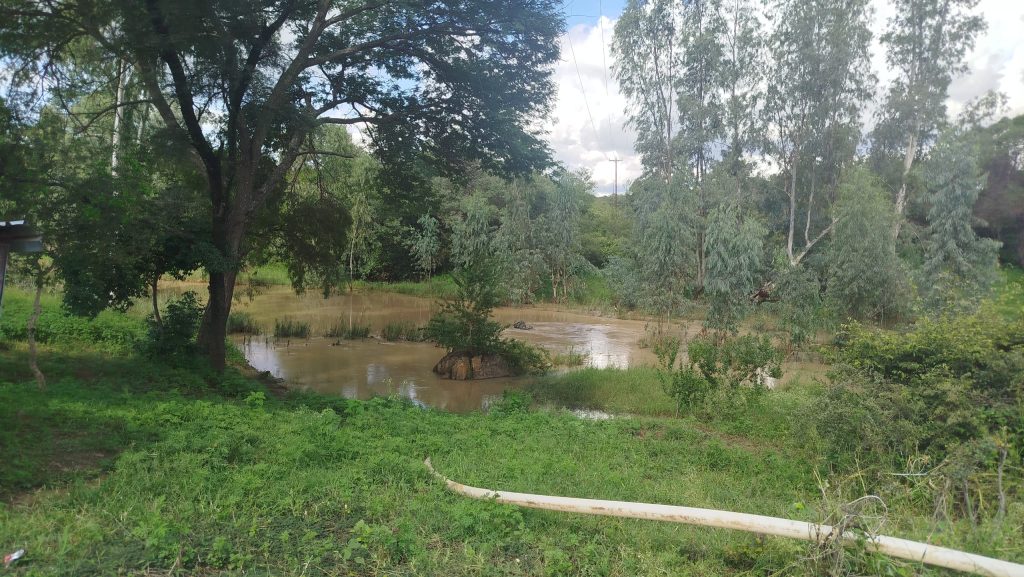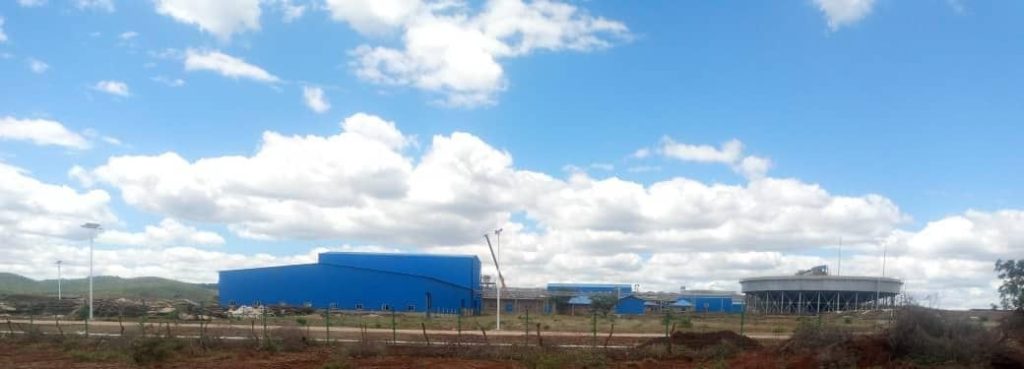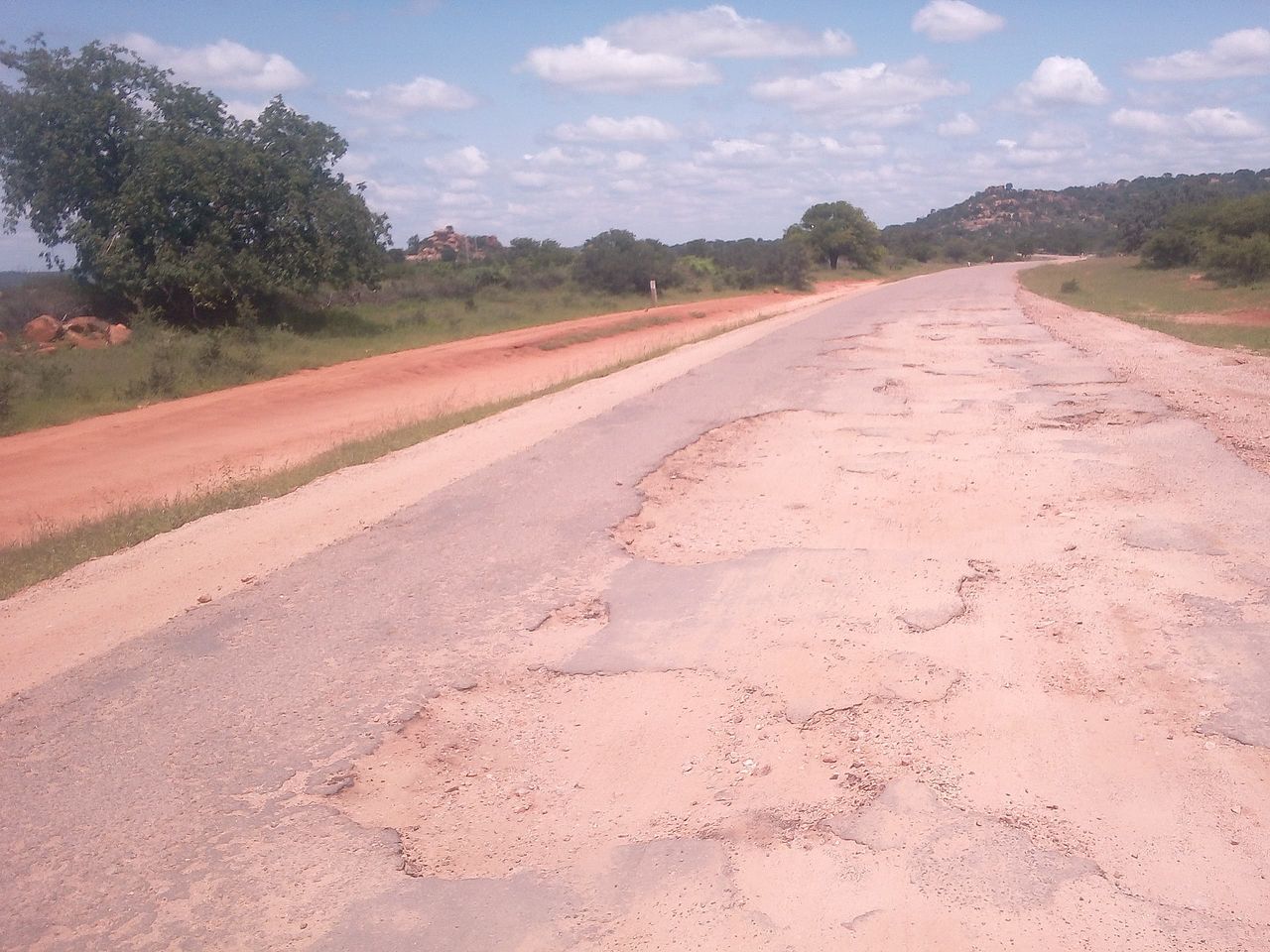Dust chokes her village, and now she struggles to breathe. This is Martha’s story.
For 53 years, Martha Noko breathed the fresh, clean air of Mandihongola in Gwanda, Matabeleland South. That changed when Chinese lithium mining began polluting her village, leaving her struggling for breath.
Now, she struggles to hold back tears as she recalls how her life changed after being diagnosed with a lung infection in early 2024—a condition she believes is caused by the dust-laden air from Chinese lithium mining operations in her village.
“There is dust everywhere, and nothing is being done about it,” Noko says. “Our entire community is against these mining operations, but nobody listens. The doctor suspects my illness is caused by inhaling this polluted air.”
“Can’t anyone hear us? Can’t anyone rescue us from these ruthless Chinese operations?”
Martha Noko
When Crawford Mineral and Dinson Mining Investment, subsidiaries of China’s Tsingshan Group, started operations in Mandihongola, Ward 11 of Gwanda South in 2022, locals hoped for jobs, development, and economic upliftment.
Instead, they now face toxic dust clouds, contaminated water, and a growing health crisis.
Since mining operations began, villagers have raised concerns about the excessive dust and chemical pollution, but their complaints have gone unanswered.
“If nothing is done, we will die, and they will mine as they please on the land of our ancestors,” Noko says. “The painful part is that the (central) government is silent.”
The Environmental Management Agency (EMA) has condemned mining practices that contribute to air pollution, warning that exposure to chemical dust and emissions can cause chronic lung diseases, respiratory infections, and even lung cancer.
However, enforcement remains weak, leaving communities vulnerable to unregulated mining activities.
Beyond air quality concerns, mining activities have also contaminated local water sources, villagers claim. In 2022, EMA condemned the leakage of a tailings dam at Dinson Mining Investment, which disposed of toxic chemicals into the community.

Mtshabezi River: The white pipes are used to connect mine compressors for water extraction. | Photo: Lynnia Ngwenya/The Citizen Bulletin
“We requested the dam to be fixed since it had some leakages. However, we are yet to follow up to assess the impact of the heavy rains received early this year,” says Decent Ndlovu, EMA’s Matabeleland South Provincial Director.
At Ntalale Clinic, a local health worker, Mavis*, confirms a sharp increase in respiratory illnesses in recent months.
“We have received many cases of respiratory infections and other conditions we cannot treat due to a shortage of medication,” she says. “We strongly believe the lithium operations nearby are the main cause. When people inhale contaminated air, their lungs and other respiratory organs are at serious risk.”
A 2023 report by the Information for Development Trust (IDT) found that most communities affected by Chinese mining operations in Zimbabwe feel they have not benefited from the investments and instead face worsening social and environmental conditions.
The Zimbabwe Environmental Law Association (ZELA) has also warned of health hazards linked to poorly regulated lithium mining operations.
But for residents like Tsepiso Motlokwa, the central government’s inaction has made things worse.
“Our government knows we don’t have enough health facilities. Even those we have are under-resourced. Yet, they approve dangerous mining operations that cause dangerous diseases,” Motlokwa says.
“Their tailings dam is leaking, yet nothing is being done to stop them,” Motlokwa adds. “People are drinking contaminated water, getting sick, and receiving no help.”

Dinson Mine: wealth inside, dust outside. | Photo: Lynnia Ngwenya/The Citizen Bulletin
The ZELA Environmental Impact Assessment (EIA) report found that the Ministry of Health and Child Welfare did not test water quality because no official complaint had been received from the community.
“The District Environmental Supervisor stated that the Ministry does not conduct water tests on large bodies unless there is a formal complaint,” the report says.
However, villagers insist they have been raising complaints since mining operations began, only to be ignored.
“The authorities don’t care about the water we drink. We have been complaining for years, but no one has come to assess the water sources.”
Tsepiso Motlokwa, a resident
Local farmer Zibusiso Moyo* lost seven cattle in late 2024 after they drank water near the dam. If it were up to him, these operations would be shut down.
“Rivers and dams were drying up last year, and our cattle would drink from any source they found, regardless of the toxicity,” says Moyo. That dam costs us a lot, and we fear that when the rains come, the poisonous chemicals will be washed into the water sources used by people,” he adds.
Despite the villagers’ growing complaints, government authorities and environmental regulators remain largely unresponsive, allowing unchecked mining practices to persist.
“At some point, children from Mandihongola Primary School were reprimanded for fetching water from the leaking tailings dam. The dam is approximately 900m from the school, and out of desperation for water, children were resorting to the leakages unaware of the deadly consequences,” says Musa*, a Mandihongola resident.
Despite the intense heat in the area, a teacher at the local primary school says learners cannot sit outside for fresh air due to excessive dust coming from Dinson Mining Investment’s operations.
An official from Crawford Mineral declined to comment on allegations of environmental violations and pollution linked to their mining operations. Repeated attempts to reach Dinson Mining Investment were unsuccessful.
Editor’s note: Names marked with asterisks (*) have been changed to protect the identities of sources.

